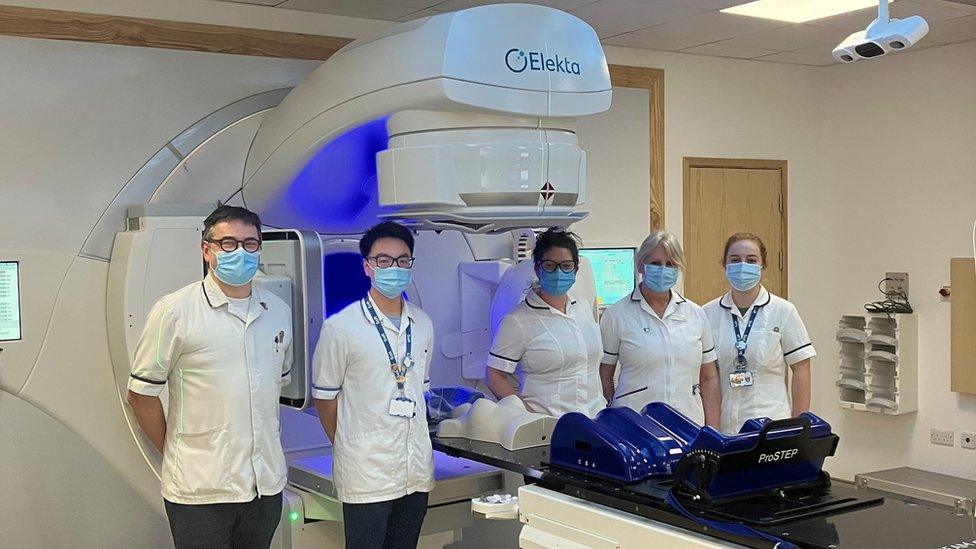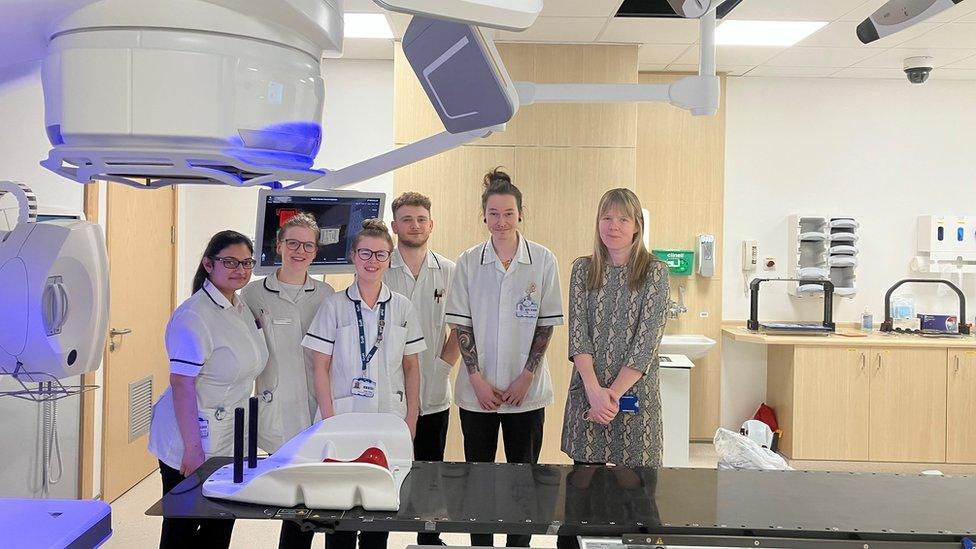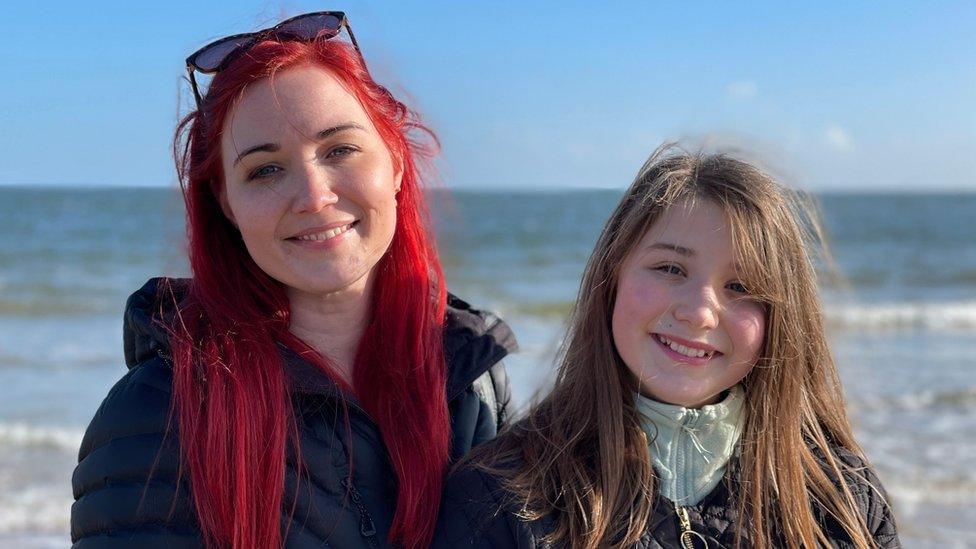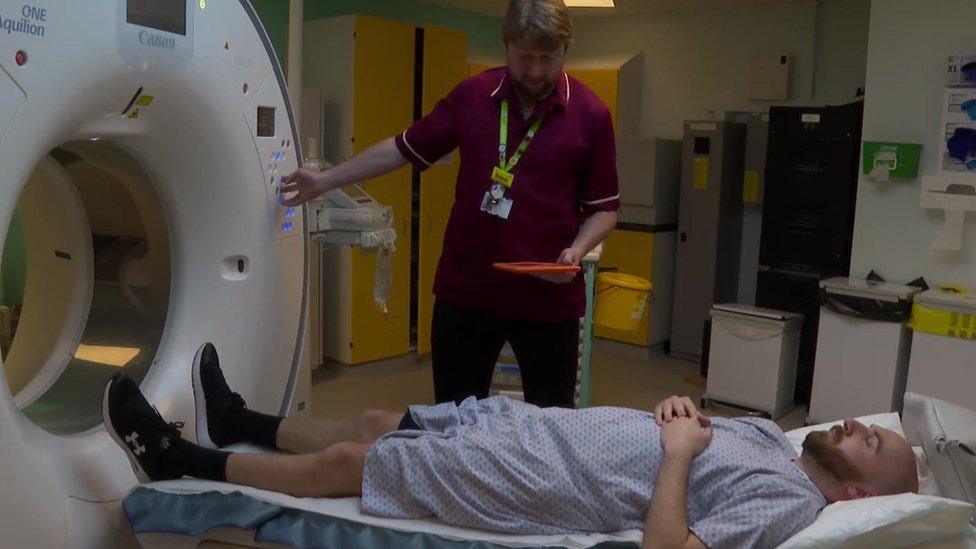University Hospital Southampton unveils new state-of-the-art cancer treatment
- Published

UHS treats about 4,000 patients every year with radiotherapy and is one of the first sites in the UK to use the upgraded equipment
A hospital trust has rolled out what it calls "state-of-the-art" radiotherapy equipment to treat patients with cancer and other conditions.
Surface Guided Radiation Therapy (SGRT) uses high-tech cameras and sensors to produce a unique map of the surface of a patient's body.
University Hospital Southampton (UHS) will use the technology at all seven of its units.
Combined with X-rays, clinicians can give more targeted radiation treatment.
Previously, permanent tattoos were used to mark the patient's body for accurate radiation treatment.
The new equipment tracks and locks the target area precisely which means there is no longer a need for tattoos.
It also switches off the treatment beam if it feels any movement, which limits the risk of damaging surrounding soft tissue or vital organs.

The radiotherapy equipment is used to treat patients with cancer and other conditions
UHS treats about 4,000 patients every year with radiotherapy and is among one of the first sites in the UK to use the upgraded SGRT equipment.
"This technology and the volume of it now in use in our organisation is enhancing the way radiotherapy is delivered...," said Amy Shaw, radiotherapy technical lead radiographer at UHS.
"It will help all patients undergoing radiotherapy by improving the efficiency and accuracy of their treatment, as well as removing the need for permanent tattoo marking."
Ms Shaw added: "Very few centres in the UK are using this technology so extensively so we are in a very fortunate position and, as a result, were selected to have upgrades to cameras and software - becoming the first in Europe to use the new system.
"I would like to acknowledge the hard work of everyone involved in commissioning and implementing SGRT quickly and safely, allowing us to offer this technology to more of our patients."

Follow BBC South on Facebook, external, X, external, or Instagram, external. Send your story ideas to south.newsonline@bbc.co.uk or via WhatsApp on 0808 100 2240, external.
Related topics
- Published22 March 2024

- Published21 March 2024
